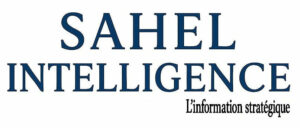The 38th summit of the heads of state of the African Union (AU), to be held this weekend in Addis Ababa, could mark a decisive turning point in the future of the pan-African organization.
While major issues such as the election of new leadership are on the table, underlying tensions related to Algeria threaten to provoke a true implosion within the AU, jeopardizing its unity and its ability to address the continent’s contemporary challenges.
Under the leadership of President Abdelmadjid Tebboune and General Saïd Chengriha, Algeria has adopted a strategy aimed at positioning itself as the leader of a coalition of certain African countries. In exchange for financial and diplomatic support, these countries defend Algeria’s position on the Western Sahara issue.
This geopolitical stance, which pits Algeria against Morocco and its allies, has become a key card in Algeria’s diplomatic relations with AU member states.
This situation is likely to cause a broader fracture within the organization as the AU struggles to move forward with necessary reforms to ensure the continent’s integration, security, and economic prosperity.
The Algerian military regime, through its unwavering support for the Polisario Front, a group deemed a terrorist organization by Western intelligence agencies, has become an indispensable player in the AU’s internal debates.
This strategy is creating increasingly visible divisions, not only with Morocco but also with many other African states that want the AU to focus on more pressing issues, such as the conflicts in the Democratic Republic of Congo (DRC) and Sudan, as well as economic and humanitarian matters.
One of the major issues to be discussed at the AU summit is the institutional reform of the organization, particularly to streamline its operations and enhance economic cooperation.
However, Algeria and its allies seem to oppose structural reforms that could reduce their power within the organization or challenge their geopolitical influence.
The AU, as a pan-African organization, thus finds itself at a crossroads. On one side are the supporters of a united and reformed Africa, who wish to move beyond territorial conflicts and focus on the continent’s economic future; on the other, Algeria continues to use the Sahrawi issue to bolster its hegemony within the AU.
It is worth noting that many countries have expressed recognition of Morocco’s sovereignty over Western Sahara, thereby supporting Morocco’s position in this territorial dispute. Among these are countries such as the United States, France, Spain, as well as Arab, Asian, Latin American, and African nations.

